"We are stepping up efforts for what is approaching" said the Minister of Culture Lina Mendon, as she joined the General Director of the Acropolis Museum Nikolaos Stampolidis to speak to "Ta Nea" about the Sculptures, in the context of the conference "Parthenon and Democracy", which took place in Athens on 16 September 2022, at the Acropolis Museum's, The Pandermalis Auditorium.
This followed the General Assembly of the International Association of the Reunification of the Parthenon Sculptures (IARPS) also held in Athens' Acropolis Museum.
UK correspndent for Ta Nea Yiannis Andritsopoulos moderated the conference.
"Greece intends to intensify its actions for the return of the Parthenon Sculptures," Lina Mendoni told "Ta Nea", on the sidelines of the international conference on "Parthenon and Democracy" organized yesterday at the Acropolis Museum, under the sorrow felt by all that gathered with the passing of its founder, Dimitris Pandermalis.
The Minister of Culture expressed the belief that "the time of the reunification of the Sculptures is approaching".
The British Museum appears willing to come to engage in dialogue, and to explore possible solutions.
The conference, organized by the Ministry of Culture and the Acropolis Museum, was attended by representatives of 17 national committees for the reunification of the Sculptures, which held their bi-annual general assembly, in Athens. This had been delayed by a year due to Covid.
"In the Parthenon, the achievements of the golden age as well as the values of humanism and Western civilization, are transformed into art. The frieze is the deconstruction of Athenian democracy", the Minister of Culture commented. "This is the first time that such an event is held without Dimitris Pandermalis, the man responsible for the foundation and the exemplary operation of the Museum, which deprived the British side of its main argument: that Greece did not have the right space to exhibit the Sculptures", Minister Mendoni continued, adding: "Athens' moral request for the reunification of the architectural sculptures of the Parthenon has intensified so that they may return to their birthplace. The international pressure for the rendering of illegally exported cultural goods to their countries of origin, the ever-increasing support of international public opinion for Greece's request and the decisions of UNESCO are today the powerful allies that allow us to believe that the time when these masterpieces of Phidias will be bathed again in the Attica light, is getting closer and closer".
"On the occasion of the conference, which we dedicate to the memory of the President of the Board of directors of the Acropolis Museum, Professor Dimitrios Pandermalis, we continue the effort for the reunification of the architectural sculptures of the Parthenon", the General Director of the Acropolis Museum, Professor Nikos Stampolidis, noted in "Ta Nea".
"The decision first taken by UNESCO in September 2021, which recognizes the correct, just, as well as the interstate and intergovernmental character of the Greek request, along with the definitive reunification of the Fagan fragment from Palermo to the Acropolis Museum where it belongs, are a cornerstone, an example of the path that the British Museum and the British Parliament must follow for the definitive return and reunification of the Parthenon Sculptures."
At the conference, it was stressed by many speakers that significant progress has been made in the struggle to claim the Sculptures in the 12 months since the historic decision of UNESCO's Intergovernmental Committee on the Return of Cultural Property (ICPRCP), which called on Britain "to reconsider its stance and engage in a bona fide dialogue with Greece". Mention was also made of British public opinion and leading newspapers, such as the "Times", showing support for the Greek request.
"We are moved to return to Athens to confirm our full support to the Greek government and the Greek people in the just struggle for the reunification of the Sculptures. This is a global demand, which is now supported by the majority of Britons. I am sure that the Sculptures will return to the place where they were born," Dr. Christiane Tytgat, Chair of the International Association for the Reunification of the Parthenon Sculptures (IARPS), which was re-elected for a second term, told "Ta Nea".
The conference featured the speeches of the academics including Manolis Korres, President of the Committee for the Conservation of the Acropolis Monuments, who referred to the sculpture and the architectural context of the Parthenon, the archaeologist Dr. Elena Korka, who spoke about the democratic symbolism of the Parthenon, and Dr. Elena Kountouri, head of the Directorate of Prehistoric and Classical Antiquities, who described the works to ensure unhindered access to the Acropolis.
At the same time, the internationally renowned Italian archaeologist Louis Godard, past Chair of the IARPS explained why the Parthenon is the temple par excellence of democracy: "I urge Britain, which claims to be proud of being an ancient democratic nation, to return to Greece the sculptures of Phidias that one of its barbarian citizens snatched from the temple of the goddess two centuries ago."
The leading British Hellenist, Cambridge professor Paul Cartledge, Vice-Chair of BCRPM & IARPS gave his presentation, questioning: "How democratic was the Parthenon after all?", and concluded: "The temple was and remains highly democratic, but not everyone saw it that way either then or today." Do read Professor Cartledge's presentation, also on this website.
To read the Yannis Andritsopoulos' article in "Ta Nea" in full and in Greek, check out the link here (there is a paywall).
Photos below from left to right: Minister of Culture and Sport r Lina Mendoni, General Director the Acropolis Museum Nikos Stampolidis, Dr Elena Korka, Mrs Vardinoyannis, PRofessor Sidjanski of the Swiss Committee, Dr Christiane Tytgat , Chair of the IARPS and the Belgian Committee, Professor Louis Godart of the Italian Committee and Professor Paul Cartledge Vice-President of BCRPM & IARPS.
On the tour guided by Manolis Korres of the Acropolis and the Parthenon, as ever the light captivated everyones attention. Pictured below some of the representatives from the 17 committees of the IARPS that attended the conference on Friday, 16 September 2022, during the tour of the Acropolis, photos courtesy of Patricia Van Gene, Fabrizio Micalizzi from the Swiss Committee and Nicholas Lynch from IOC-A-RPM.

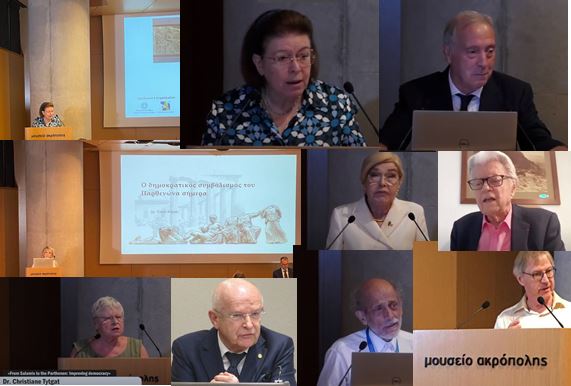
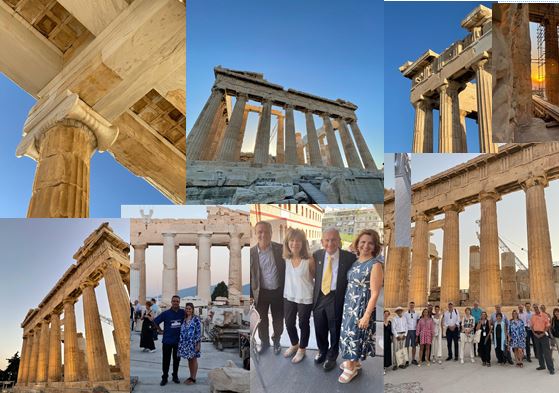
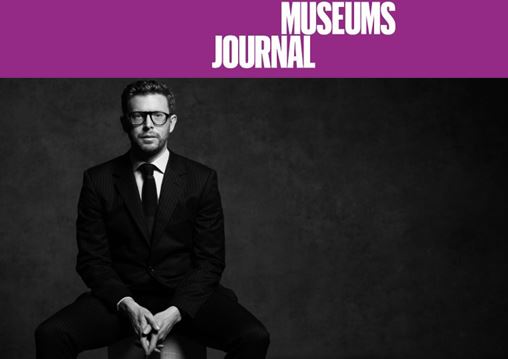
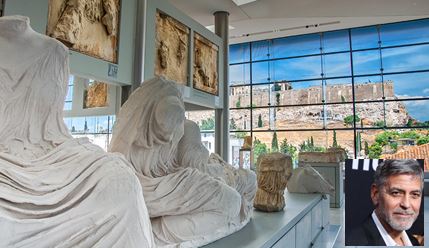
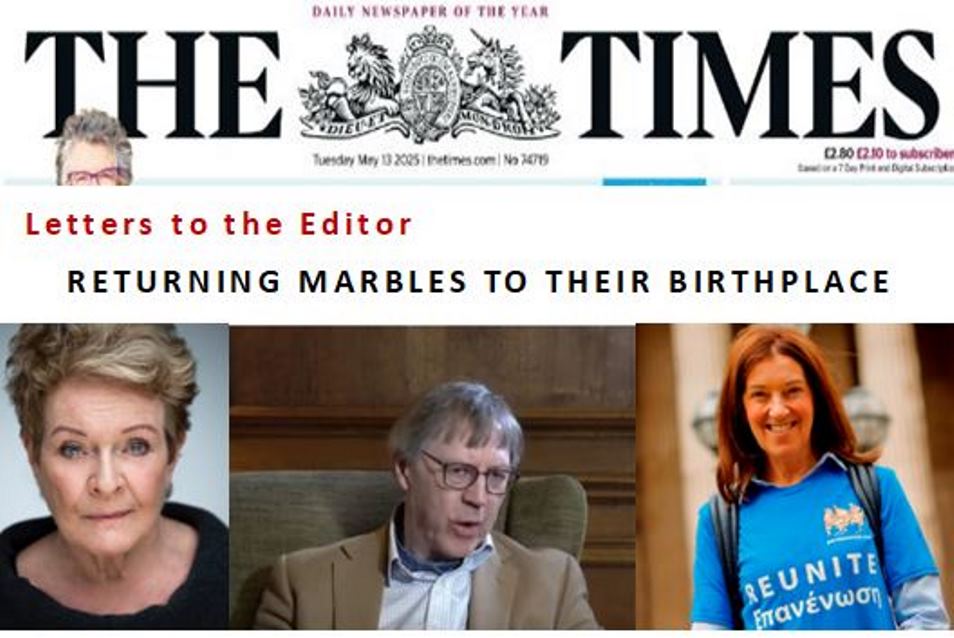

Comments powered by CComment